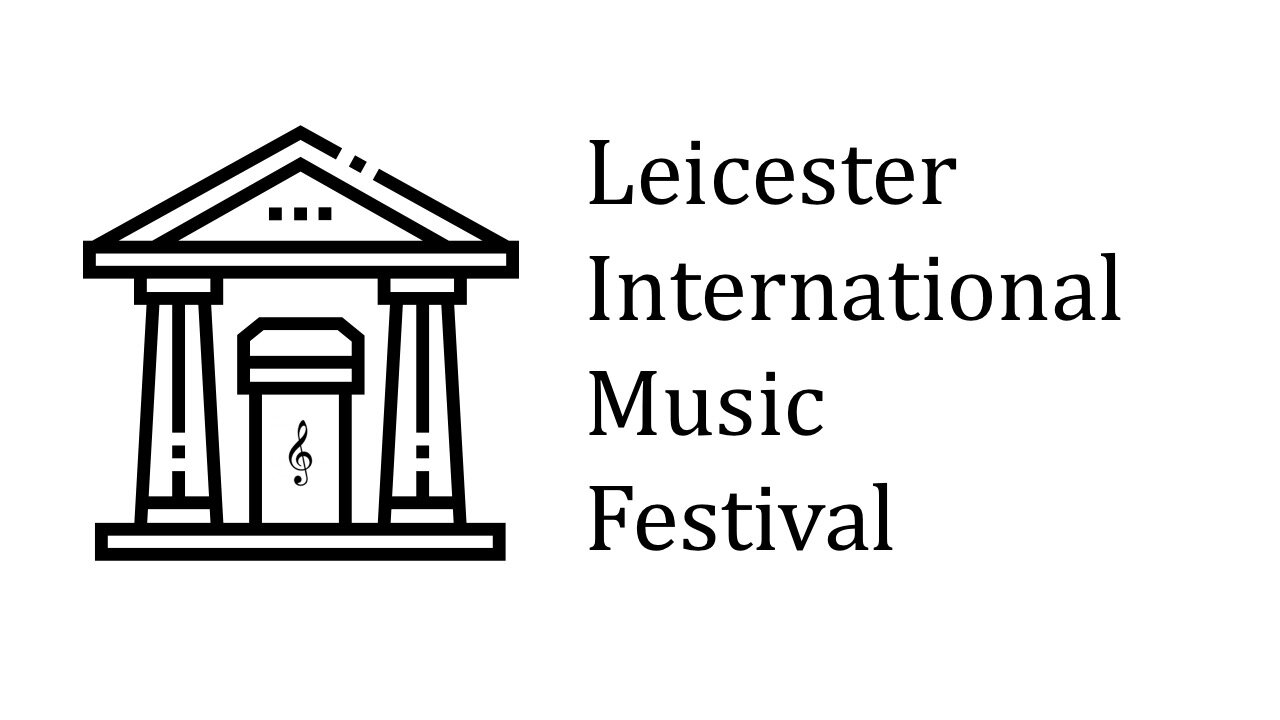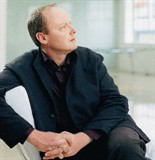James MacMillan
SIR James MacMillan CBE
In 2005, the Festival was honoured to have James MacMillan as Composer in Residence. We were delighted when James agreed to become a Patron of the Festival in 2006. Born in Ayrshire, Scotland in 1959, James MacMillan is one of today’s most successful living composers. His music is notable for its extraordinary directness, energy and emotional power. References to Scottish folk music imbue his work with a strong sense of the vernacular, while strongly-held religious and political beliefs coupled with community concerns inform both the spirit and subject matter of his music. MacMillan is internationally active as a conductor and in 2000 was appointed Composer/Conductor with the BBC Philharmonic. He was awarded a CBE in January 2004. The successful premiere of Tryst at the 1990 St Magnus Festival led to his appointment as Affiliate Composer of the Scottish Chamber Orchestra. Between 1992 and 2002 he was Artistic Director of the Philharmonia Orchestra's Music of Today series of contemporary music concerts. His works are now performed throughout the world by most major orchestras.
Among MacMillan’s major works are The Confession of Isobel Gowdie, premiered at the BBC Proms in 1990, Veni, Veni, Emmanuel, the percussion concerto written for Evelyn Glennie which has received more than 300 performances, a cello concerto for Mstislav Rostropovich, a major choral orchestral work, Quickening, and three symphonies.
Alongside his work as a composer, James MacMillan is greatly in demand as a conductor, for many years having directed his own scores and more recently conducting a range of repertoire and special projects with major orchestras and ensembles around the world. Now in his 5th season as Composer/Conductor of the BBC Philharmonic, MacMillan conducts many of the Orchestra’s contemporary projects including new commissions, recordings and performances at the Bridgewater Hall, BBC Proms, Concertgebouw Amsterdam and Huddersfield Festival.
In addition to this role, recent guest conducting activities include the London Symphony Orchestra’s world premiere of A Deep but Dazzling Darkness, as well as concerts with Rotterdam Philharmonic, Sydney Symphony, NHK Symphony, Melbourne Symphony, Orquesta de la RTVE Madrid, Netherlands Radio Symphony, Residentie Orkest and many others. In the USA, he was Composer-in- Residence at the Aspen Festival in 2004 and in May conducted the New York City Ballet’s world premiere of his latest ballet commission. He recently conducted in the Los Angeles Philharmonic’s Green Umbrella season and the Philadelphia Orchestra musicians at the Saratoga Festival.
Thea Musgrave
Thea Musgrave CBE
The Festival is honoured to have the distinguished composer, Thea Musgrave, who was the festival's first Composer in Residence in 2004, as one of its Patrons. Thea was born in Barnton, Midlothian, in 1928. After studies at Edinburgh University she spent four years at the Paris Conservatoire as a student of the great teacher Nadia Boulanger, winning the Conservatoire’s Lili Boulanger Memorial Prize in 1954. The same year she wrote one of her first works to attract widespread attention, Cantata for a Summer’s Day for narrator, chorus and small orchestra, commissioned by BBC Scotland. She became involved in education work, at Dartington Summer School, and in extra-mural classes for London University, one outcome of which was Excursions for piano duet.
In 1970 she was appointed Guest Professor at the University of California, Santa Barbara, and the following year married the American conductor and viola player Peter Mark, for whom she wrote her Viola Concerto in 1973. She settled in the USA in 1972; three years later Peter Mark was appointed conductor of Virginia Opera.
She has written several operas, including The Voice of Ariadne (1973), based on a story by Henry James, A Christmas Carol, from the Dickens novel (1979), Harriet, the Woman called Moses (1984) and Simón Bolívar (1992). A dramatic principle can also be heard at work in a number of her concert pieces, often combined with an exploration of the possibilities opened up by using the available space. An early example of this approach is the Chamber Concerto no 2 of 1966, in which the role of leader is shared between different instruments, with players cueing each other, and with solo cadenzas for individual players. In 1967 she described to friends a vivid dream of an orchestral piece in which the clarinet “went crazy”. The following day a commission for an orchestral work arrived from the BBC. In response she wrote her Concerto for Orchestra in which the clarinet leads other solo wind instruments in a rebellion against the conductor’s dominance. The soloist in her Clarinet Concerto (1968) moves around the orchestra, interacting with different groups of instruments. Night Music, from 1969, has prominent roles for two horns, whose music becomes increasingly dramatic the further apart they stand, ending with one staying on the platform while the other slowly moves offstage. In the Horn Concerto (1971) the orchestral horns are placed around the auditorium, their entries cued by the soloist. More recent works exploring the relationship between soloist and orchestra include Helios (oboe and small orchestra), for Nicholas Daniel, and Journey through a Japanese Landscape (percussion and wind band), for Evelyn Glennie.
Following a number of experiments in the late ‘60s, Musgrave has used taped and electronically-generated sounds in a number of instrumental works, including Niobe, for oboe and tape, and Narcissus, for flute and digital delay.
Her continued interest in what she calls ‘dramatic-abstract musical forms’ has produced a distinguished body of work which has not really enjoyed the high public profile it deserves.
Paul McCreesh
Paul McCreesh
The English conductor, Paul McCreesh, is widely regarded as one of the most exciting artists of the younger generation in the field of early music and the Festival is delighted that he has agreed to become a Patron of the Festival. He has done extensive research into music of the 17th century and is also an accomplished cellist. While a student at Manchester University he formed a chamber choir and a period instrument ensemble which in 1982 evolved into the Gabrieli Consort & Players.
Since then, conductor and group have gained an international reputation for their performances of Renaissance and Baroque music. Besides performing established masterpieces by Monteverdi, Purcell, Schütz, Handel and Bach, the ensemble often presents little-known repertoire and is particularly noted for spectacular reconstructions of major musical events from the 16th and 17th centuries.
Paul McCreesh and the Gabrieli Consort & Players are frequently heard in concerts and radio broadcasts in Britain and throughout Europe. They have performed at the Henry Wood Promenade Concerts and at the South Bank Centre in London, at international festivals and concert series in Bruges, Utrecht, Rome, Milan, Lyon, York, Glasgow, Barcelona and London - where they also participated in the inaugural concert of the Covent Garden Festival. In January 1994, the ensemble opened the 'Resonance' Festival in Vienna and in August 1994 they appeared at the Lucerne Festival. Paul McCreesh is founder and Artistic Director of the Brinkburn Summer Music Festival which first took place in July 1994. Paul McCreesh and the Gabrieli Consort & Players made their debut as exclusive Archiv Produktion artists with Venetian Vespers, a reconstruction of a festive Vespers service as it might have been performed at San Marco, Venice in 1643.
Lars Tharp
A specialist in Ceramic History as well as oriental works of art, Lars Tharp is well known to viewers of the BBC Antiques Roadshow (which he joined in 1985). He is a former Trustee of the Leicester International Music Festival, an amateur ‘cellist and passionate about music. The Festival is delighted Lars agreed to be elevated from Trustee to Patron.
Lars is a popular speaker amongst many and varied societies and gatherings. He appears on numerous Radio and television programmes, most recently presenting his own 12-part BBC Four series, Inside Antiques (2004), while hosting several series of BBC Radio 4’s antiques quiz, Hidden Treasures and For What It’s Worth –a social history of “objects”. Besides the Roadshow, ongoing TV projects in 2005 include Castle in the Country; a programme on Hans Christian Andersen (with Michael Rosen); and a documentary on another fellow Dane, the artist Vilhelm Hammershøj (with Michael Palin). In April 2005 he lectures in the Faraday theatre at the Royal Institution on Milk, Medicine and Madness –a Quack’s Progress.
Lars was born in Copenhagen and educated in England. After studying The Old Stone Age at Gonville & Caius College, Cambridge, he joined Sotheby’s in 1977, becoming a director and auctioneer with the firm. In 1993 he left to set up his own consultancy business advising museums, auction houses and private clients on the acquisition, care and disposal of ceramics. A frequent visitor to China, he lectures worldwide – to various academic and commercial institutions (including the National Trust, the National Art Collections Fund, New Scotland Yard, the RSA and several universities), to conferences and festivals, corporate groups, etc., etc. He has numerous publications to his name, is a trustee of The Museum of Worcester Porcelain, a fellow of the Royal Society of Arts and a liveryman of England’s oldest recorded guild, the Worshipful Company of Weavers.
Lars is also a keen student of the life and times of William Hogarth and is co-founder of the recently launched Hogarth Group (patron Ian Hislop) with its annual “Golden Head” prize for satire. In his talk Whores, Rakes and Crashing China Lars leads us through the harlot’s chamber, past milord’s mantelpiece and into the mayhem of London’s streets and taverns, hunting out along the way pots, crocks and porcelain as seen through the eyes and works of England’s greatest narrative painter. Other talks in his Hogarth series include: Crime and Punishment in Hogarth’s London; Tempus Fugit, Childhood in Hogarth’s World; and Hogarth’s London Today.





